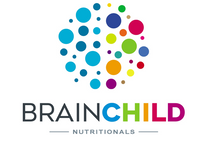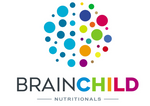Health Information
How Vitamins & Minerals Help your Health

VITAMINS
Vitamins are organic (carbon containing compounds) that are required by the body for normal growth and activity. They have diverse biochemical functions, with one of the most prominent being to serve as cofactors (co-enzymes) for enzymatic reactions. Some vitamins have hormone-like functions and act as regulators of mineral metabolism (such as vitamin D), others are regulators of cell growth and differentiation or act as antioxidants like vitamin C and vitamin E and help to maintain structures within cells.
Vitamins are considered micronutrients, which is an essential nutrient needed in small quantities that cannot usually be synthesized by the body. Although vitamins are required in small amounts they are absolutely essential in a nutritionally adequate diet. There are 13 vitamins which can be divided into two main groups, fat soluble and water soluble. The water soluble vitamins include the eight different types of B complex vitamins and vitamin C and are excreted fairly rapidly. The fat soluble vitamins are vitamins A, D, E and K and can be stored by the body. They are absorbed through the intestinal tract with the help of lipids (fats).
MINERALS

Minerals are essential components or our cells and act as catalysts for many biological reactions which include:
- Maintaining normal heart rhythm and muscle response
- The transmission of nerve impulses through the nervous system.
- Absorption and utilization of vitamins and other nutrients
- Maintaining pH balance in the body.
- Provide structure in forming bones and teeth
- Necessary for oxygen transport and cellular metabolism by becoming part of enzymes and hormones that modulate cellular activity
Minerals are found in nuts, fruits, vegetables, and other foods, but it's hard to get enough minerals from diet alone. Our soil has become mineral-depleted, and for this reason many fruits and vegetables are no longer good mineral sources. One big example of this is a recent study which found that 85% of Americans are deficient in the critical mineral Magnesium. One measure we can all take to help get enough minerals is to buy organic fruits and vegetables, which have been shown to contain higher levels of vitamins and minerals than conventional produce.
Minerals affect thousands of chemical reactions in the body and are found in all tissues, internal fluids, and are constituents of bone, teeth, muscle, blood and nerve cells. They are vital to overall health and well-being. Every time we breathe, our heart beats or we move a muscle we are utilizing minerals. Although the body can manufacture certain vitamins, it cannot manufacture a single mineral.
Vitamins cannot function properly without the aid of minerals, and while a vitamin is not a source of energy by itself, it can provide the key the body needs to unlock energy stored in food. Some vitamins and minerals work together, such as the mineral zinc and vitamin A. Zinc enables the body to use vitamin A to promote good vision. Not getting enough vitamin A may lead to night blindness, a condition in which the eyes have trouble adjusting to darkness. Zinc supplementation may help prevent this condition by helping the body use vitamin A. Another example is calcium and vitamin D. Calcium, which is very important in bone and heart health, is more readily absorbed if vitamin D is also present.
How do Vitamins & Minerals Work ?
Vitamins and minerals play an essential role in the body’s normal metabolism, growth and development. Most vitamins and minerals act as cofactors or coenzymes which are necessary components in enzymes.
An enzyme is a molecule that coordinates the thousands of chemical reactions that happen in our cells every day and which are needed for good health. When a cofactor such as a vitamin or mineral bind to an enzyme it enables them to function at their optimum level supporting the body with all the chemical reactions needed for healthy development and growth. Without vitamins many of these reactions would slow down or stop altogether.






